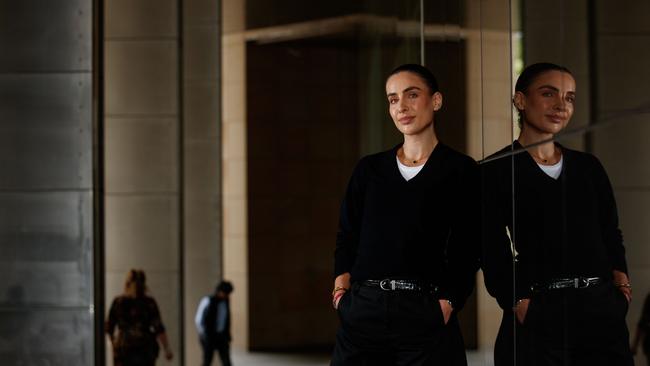How lawfluencing can elevate your career and boost your income
Are you a lawyer battling the cost of living crisis? Do you want to boost your personal profile, or help junior talent with career advice? Well, do I have the side hustle for you.

Are you a lawyer battling the cost-of-living crisis? Could you benefit from boosting your profile or growing a greater network with your esteemed law-loving colleagues? Do you enjoy helping junior talent and sharing tips and tricks with those in the early stages of their career?
If you answered yes to any of those questions, do I have the side hustle for you: lawfluencing.
It’s a portmanteau for the digital age, where legal professionals build huge Instagram, TikTok and YouTube followings to spurt content about their day to day, as if they were trained social media influencers.
Videos may include a DITL (day in the life) of a lawyer. Perhaps an office or court OOTD (outfit of the day). Some even give advice to those attending a hearing, such as what time to arrive and how to address a judge properly.
Then they partner with large brands – often luxury fashion, stationery or software – and intersperse sponsored content across their feed, which includes the respective product in their videos.
It is not silly, it is not frivolous. It is bloody clever, and let me tell you, they are making bank. Companies are willing to pay top dollar for lawfluencers with high engagement – if their followers regularly like, share or comment – to spruik their products in a video.
Research estimates that micro-lawfluencers – only about 2000 followers – can make up to $750 for a post. Creators with a larger reach make about $10,000 for a minute-long video.
With figures such as those, don’t be too shocked if you see yours truly pop up on TikTok tracking my “DITL of a Sydney legal reporter”.
It’s not just the cash. Lawfluencers also can enter collaborations with brands that result in free (or “gifted”) products in exchange for a post.
“These lawyers are picking up on a trend started by other professions,” Australian National University marketing lecturer Andrew Hughes tells Inquirer.
“For example, tradies out there are doing their own YouTube channels and some of them have up to half a million followers. Chefs, of course, have done it for a long time. Gordon Ramsay has moved away from TV shows to do instructional videos on how to keep your kitchen organised.”
Hughes says it is something he is seeing among his law students, who are building out their own accounts. “It’s about the side hustle,” he says. “Everyone’s trying to make a buck or two on the side of something.”
It also helps to boost the professional profile of the creator – particularly those who don’t come from legal royalty.
“They don’t have connections, they’re probably not connected to anyone too famous in the law fraternity,” Hughes says. “So, they leverage off something else, and they’re building their network and moving up.”
Let’s take Sydney-based in-house solicitor Denny Katidis (@denkatidis) as an example. Katidis works at a top-tier international law firm and has a TikTok following of nearly 70,000.
The young lawyer mostly makes luxury fashion and beauty content, and has a highly curated feed full of well-edited videos showing the glossier side of the legal life.
While she doesn’t describe herself as a traditional lawfluencer, her videos often track her work days and her office outfits, along with her make-up and clothing choices, social occasions, influencer events and exercise.
“(My videos) can be relatable because … I’m going into the office, I work a 9 to 5, and so I’m sharing, for example, a five-minute make-up routine that other people who are also time-poor can take something from,” she says.
“It’s actually been a great way to engage with people. Not so much just because I’m a lawyer but more so just because I see myself as a regular person that works a full-time job but also has interests outside of my career.”
Katidis enjoys the “9 to 5 grind” and so would never pursue a career as an influencer full time. But, she says, content creation is somewhat of a “passion project” for her, where she can express herself online and “make a little bit of pocket money”.
She says the cost-of-living crisis is “very concerning” and leaving young people seeking extra income. “With cost of living, a lot of people are having second jobs or side hustles,” she says. “A lot of my friends have side hustles. Not necessarily TikTok or content creation, but I’ve got a friend who started a photography business … and that was in addition to working a corporate job.”
Asked how she is able to make the time to shoot and edit videos amid a busy work schedule, Katidis simply says: “Because I’m so used to it, I can do a video in a couple of minutes.
“It’s definitely not a production by any means,” she adds.
Katidis is engaged with an influencer talent agency, which handles her correspondence with clients and brands. “Pretty much anything that comes through I flick to them and they’re quite incredible at staying on top of all that,” she says.
A “pinch me” moment came for Katidis earlier this year when she attended Australian Fashion Week. “Leaving the office and jumping in a cab and trying to make my way to Carriageworks was quite surreal,” she says.
“My job always takes priority, but if there is some way where I can squeeze in something else fun, I’m always going to try and make it happen.”
The rise of the lawfluencer comes as audiences lose faith in traditional social media stars, Hughes says. Brands are likelier to spend smaller amounts with trusted, niche influencers rather than huge amounts with someone such as Kim Kardashian, who may have a large following but a less targeted purpose.
“We just can’t trust influencers any more, per se, on a large scale. Everyone seems to be a wellness influencer. There are so many people out there creating content on TikTok, who do you trust?” he says.
“So along came the trend of leveraging your existing network on social media to make content, which is then influencing people. It’s far more effective because I can trust the message usually because I know who it’s from.”
An entirely different strand of lawfluencing has emerged among predominantly male creators.
@Thybeardedlawyer offers practical advice for offenders appearing in court. In a recent video he answered the question of what to wear when appearing before a judge.
“I will tell you what to try to avoid: try to avoid wearing a hat … shorts, TNs, AirMaxes,” he says. “Try to avoid looking like a lad. But at the same time … you’re not attending a wedding.”
Solicitor Jahan Kalantar, who has 422,000 TikTok followers, began making content during the Covid-19 pandemic when his practice closed down.
His first post on LinkedIn explained how a public health order worked. While that post got little engagement, once he made it into a video he saw his follower count go up.
“I use my legal education to try explain things in a more meaningful fashion,” he says. “I don’t give legal advice at all, I explain how the legal system works in general.”
Mel Storey (@theinhouselawyer) brands herself as a “career big sis” and offers her followers tips for climbing the corporate ladder.
She makes no money from her social media account, despite having 10,000 TikTok followers and 5000 on Instagram. She hosted a podcast that received one-off sponsorship, but for now Storey says she is “not trying to sell anything”.
“For me it’s not about money and it’s not about brand deals or products or anything like that,” she says.
“I can buy those things myself if I want. I don’t think the juice is worth the squeeze for me, and I don’t want to monetise the community because I think it changes the nature of the relationship.”
For Storey, social media has become “a way for me to network while we were all at home and to share information, to provide a resource that I wish I had available to me when I was earlier in my career”.
“That’s almost the No.1 driving principle for me in every piece of content that I do,” she says.




To join the conversation, please log in. Don't have an account? Register
Join the conversation, you are commenting as Logout